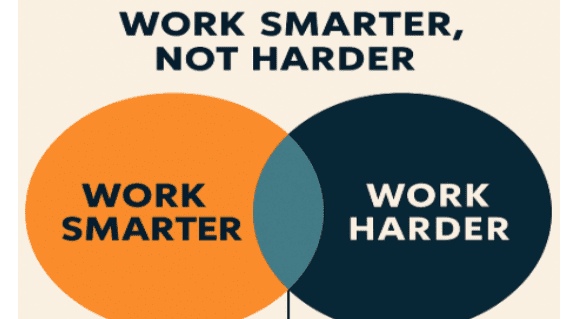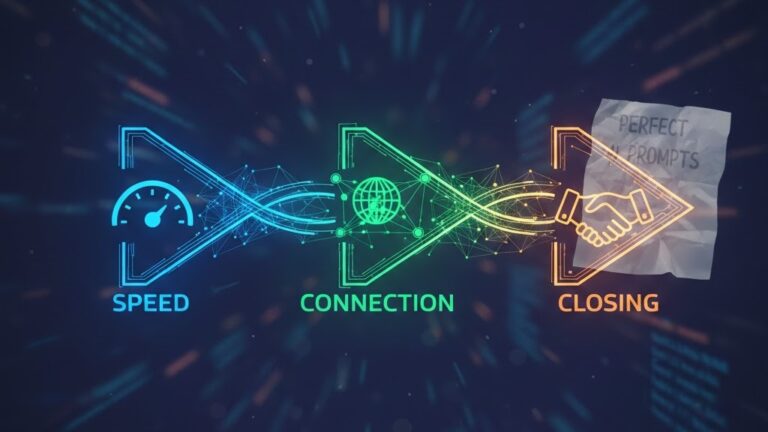We’ve all heard the expression “Working Smarter Not Harder” but what exactly does that mean? Conversely, we also hear “Hard Work Pays Off” can both be true?
Absolutely—both “Work smarter, not harder” and “Hard work pays off” are valid, powerful statements that can coexist. They’re not contradictory, but rather they are two principles that complement each other. Applied together, they can unlock extraordinary results. Together, let’s explore what each really means.
“Work Smarter, Not Harder” – What It Really Means
At its core, working smarter is about efficiency, strategy, and leveraging resources. It doesn’t mean avoiding effort; rather, it means directing your effort in ways that yield maximum results with minimum waste. Below are a few examples and what they look like.
- Automating repetitive tasks to save time
- Prioritizing high-impact activities (the 80/20 Rule)
- Using data to make decisions rather than relying on guesswork
- Delegating effectively and focusing on what you’re really good at. your zone of genius
- Continuously improving systems and workflows
Working smarter is about leveraging tools, insight, and strategy to make your effort more effective. it isn’t about grinding yourself into exhaustion—it’s about efficiency, strategy, and leveraging your resources. For example: using AI for lead generation, streamlining your CRM processes, or identifying which clients bring the highest lifetime value and focusing your attention there. Working smarter allows you to achieve more with less effort.
“Hard Work Pays Off” – Why Effort Still Matters
Why effort still matters is a reminder that while strategies and tools are essential, the foundation of sustainable success is still good old-fashioned hard work, consistency, and resilience. “There’s no substitute for hard work.” An expression popularized by Thomas Edison over 100 years ago reminds us that success requires sustained effort. You can have all the tools and shortcuts in the world, but if you lack the discipline, commitment, and resilience to put them into action consistently, you’ll fall short. Hard work is:
- Showing up every day—even when motivation is low
- Putting in the time to build skills and gain mastery
- Persisting through setbacks, rejections, or failures
- Going the extra mile when competitors give up
Here’s a great example: Hard work is the hammer, while working smart is the blueprint. You can swing the hammer all day, but without a plan, you might end up building the wrong thing—or building it poorly. On the other hand, a perfect blueprint with no effort behind it remains just a dream on paper. Real success requires both the tools and the vision.
How They Work Together – The Balanced Approach to Success
The most successful entrepreneurs, leaders, and high-performers understand that you can’t choose one over the other. You must blend both principles:
- Use smart strategy to choose the right goals, tools, and tactics.
- Use hard work to execute relentlessly and rise above challenges.
For example: a sales strategist (working smart) might identify which customer segments are most profitable, and then dedicate focused time daily (working hard) to deeply understand and serve those clients
Maximizing impact and sustaining momentum. demands consistency, action and direction. When you work smart and work hard, you’re able to build not just temporary wins—but lasting, scalable success.
A question to the reader; Are you currently putting in more effort—or more strategy—and what would change if you recalibrated the balance?


